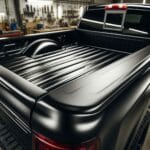Effective truck operation is vital for the longevity, productivity, and safety of the truck. Besides preventing it from breaking down, regular maintenance will save you from expensive roadside repairs. Here are some expert maintenance tips to help keep your vehicle in top condition.
Listen to the Manufacturer’s Maintenance Schedule

Accompanying each truck is a manufacturer’s maintenance schedule, clearly stating a schedule for performing specified services. This should be done to ensure the efficient operation of the vehicle, such a schedule allows for noting any potential problem and fixing it before it grows serious.
Be watchful over any hefty tasks such as oil servicing, tire rotation, brake servicing, etc., which are part of routine services. If you’re able, opt for superior-quality truck parts to help you get as much performance as possible.
Ensure that Fluids and Filters are Changed On Time
Examples include the engine oil, transmission fluid, coolant, power, brake fluid, and steering fluid that your truck relies on. Check the levels of these fluids regularly and, if necessary, top it up. Low or dirty fluids cause poor performance, which could damage critical components.
Even more important to know about the air filters is that they keep all the dirt and debris away from the engine. Check the manual to learn how to replace the air filters to keep the engine clean, thus making it run well and efficiently.
Check The Tires and Battery Regularly
Tires play a very vital role in the truck’s safety and performance. Therefore, you must occasionally inspect your tires. Be sure to rotate your tires on time to maintain uniform wear and to receive a long lifecycle on each set of tires.
A healthy battery is essential to have proper, dependable starts, and for all of your truck’s electrical systems to function well. Look for corrosion on the battery terminals, and be sure all connections are clean and snug. Test your battery regularly and replace it as needed.
Keep an Eye on the Brakes and the Cooling System
Your truck’s brake system is one of the most critical safety features. It’s important to make sure to inspect routinely for anything wrong with the brake pads, rotors, and fluid level. Strange sounds from your brakes, especially a high-pitched squeal or a grinding, might mean the pads have worn through.
Deal with those problems immediately, as letting them worsen will only grind down your stopping power.
On top of that, the cooling system will keep the engine at the right temperature. Be sure that the level of the coolant is checked and adjusted with the proper coolant and water mixture. Check over the radiator, hoses, and belts as other sources may leak, flush cooling systems at appropriate intervals, and then check the system for leaks.
Keep Up with Engine Tune-Ups
Periodic tuning, including spark plug substitution, monitoring the ignition system, and ensuring that the fuel system is clean, will keep the engine at its peak performance. A tune-up can increase your fuel efficiency and stop emissions, but this is also important as it relates to stopping minor headaches from becoming big ones.
Maintain the Truck’s Cleanliness
Regular painting and waxing of the vehicle periodically will enable the car to keep its appearance over time. During washing, the protection of the paint, as well as the body, is better enhanced since it will prevent corrosion.
Dig further into cleaning the underside to remove dirt, salt, and other debris that might cause rust and damage. More importantly, interior cleanliness will eliminate wear from the seats, carpet, and dashboard.
So, now you know how important it is to stay on track to keep your truck running well. Make sure to be alert to every strange occurrence that comes while driving, as these, too, can be warning signs of a problem.
As soon as you notice something unusual, do not just take it for granted. Either inspect the concern right away or have a truck specialist properly diagnose the problem so you can take care of it at once.







